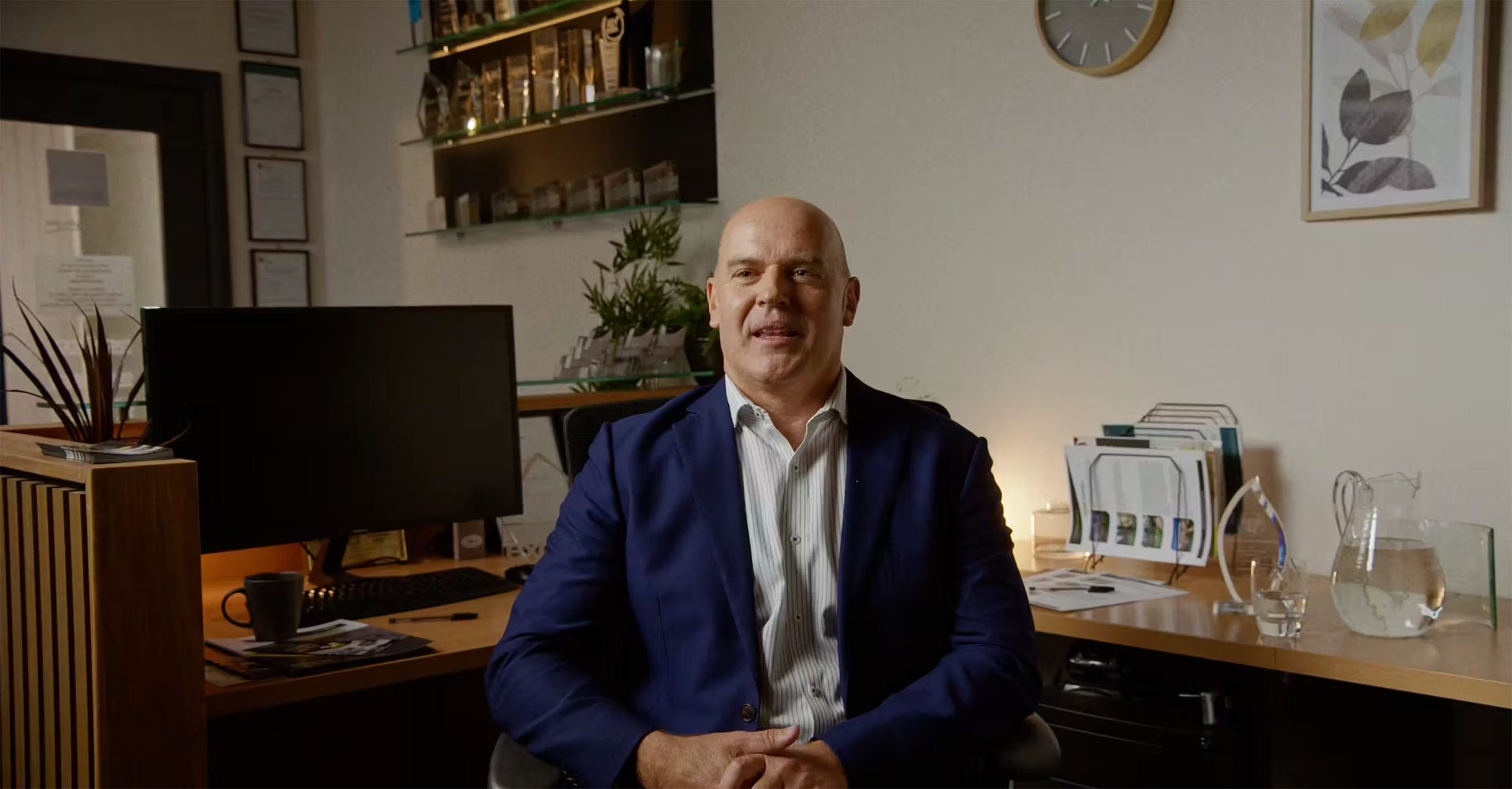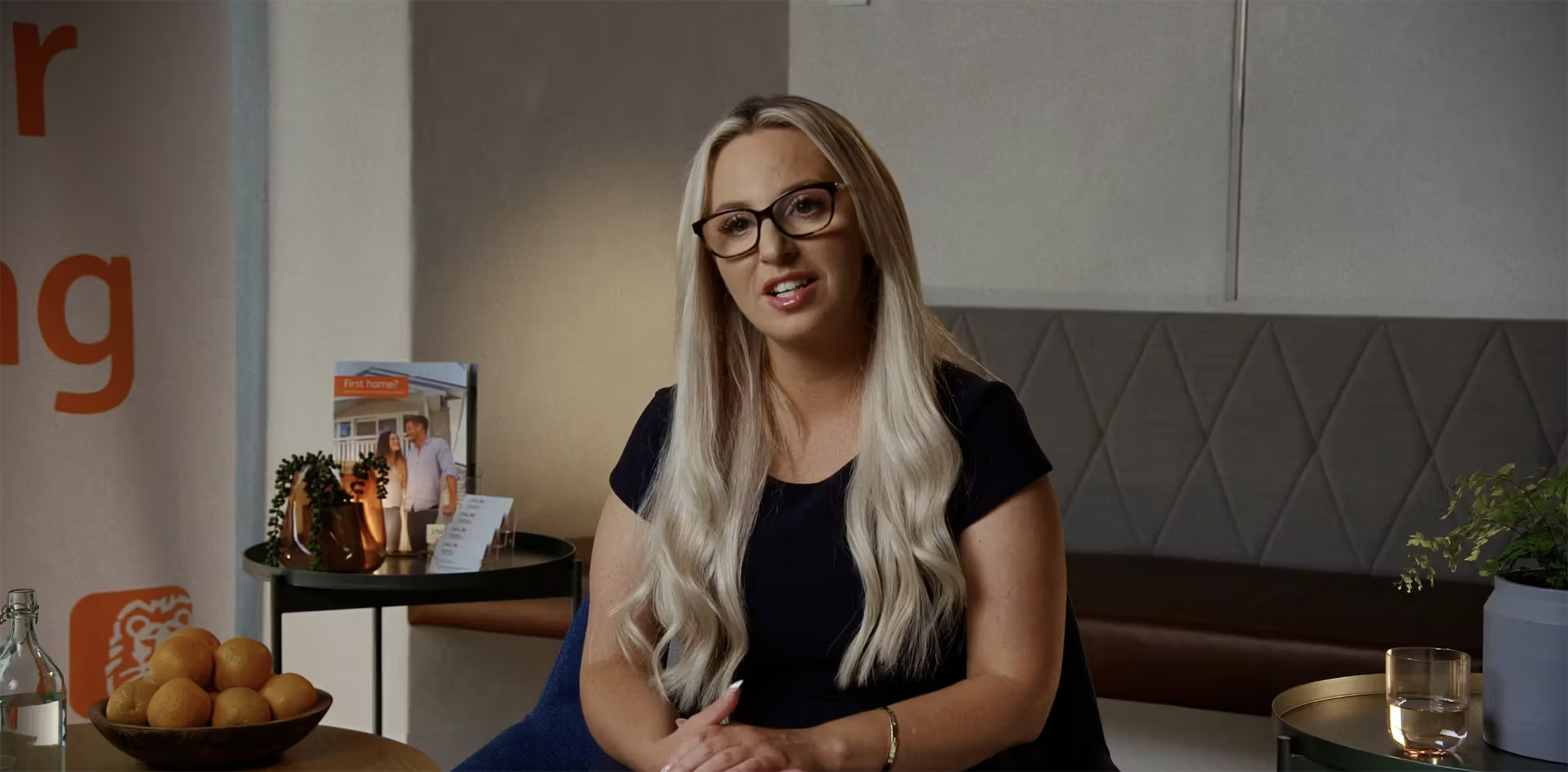So you’ve found the perfect place: find out from an expert what happens next.
So, you’ve found the perfect place to make your first home. This will probably ...
7 min read
If you’ve got a handle on your borrowing power and have taken steps to calculate it, your next step might be thinking about how you can take it further. To help you get your boost on, we’ve had a chat with one of our ING Home Loan Specialists, Belinda Webb, about how lenders calculate your borrowing power and a few things you can do to help it grow. Plus, we’ve made a checklist for you to download to help you try every way to boost.
Hi! So, borrowing power is essentially the amount of money that a person can borrow for their home loan, based on their financial situation.
Your borrowing power helps determine the maximum amount you can borrow from a bank. Knowing that amount helps you find the maximum amount you can pay for your first home – so, the top of your budget, basically. Once you know your borrowing power, you can start looking around for your first home based on a price range that works within your budget.
Borrowing power is basically a calculation of income versus expenses. There are certain things lenders (like us) take into account: such as income and expenses, as well as savings and debts too.
Your savings history gives us a picture of your financial history and provides an indication of whether you’re able to comfortably take on the regular loan repayments. And debts are two-fold: the balance is a liability, and the ongoing payments are an expense. But there are a bunch of things you can do, across your income, expenses, savings and debts, that could help boost your borrowing power.
It might come as a surprise, but your credit score won’t affect your borrowing power, although it will determine whether a lender will lend to you in the first place. That said, tidying up your credit score will help to give yourself the best chance of the bank saying ‘yes’ to your loan application. So you might like to do things like paying your loans on time and cancelling or closing any credit cards you don’t use.
Income is really important because it’s one side of the income-versus-expenses coin. When it comes to working out your borrowing power and how much a lender may lend to you, a lender needs to make sure your income is adequate to cover all of your living expenses, including your home loan repayments.
Yep. If you have different types of income, they may boost your borrowing power further than a base salary alone. Your lender may only take certain types of income into account if you can show evidence that they are regular and consistent.
One thing you can might be able to do is salary sacrifice for certain costs. For example, if you work for a company that lets you allocate your pay to costs like car repayments that get deducted before tax, this may be a better outcome than paying for the costs from your income after tax. You may need to speak to your employer or an accountant or financial adviser to see if these kinds of arrangements will work for you. – like car payments, for example. If you work for a company that lets you allocate your pay to costs like that before tax gets deducted, consider taking up the offer. It can boost your borrowing power, as you’ll effectively receive more net income. Of course, these kinds of arrangements need to be assessed for your own situation, so it’s a good idea to seek independent tax or financial advice on this.
Yes, if you adjust your expenses you could boost your borrowing power. But there is a limit. We will always take a minimum level of expenses to reflect a reasonable amount for your anticipated expenses.
To help adjust your expenses, do a budget tracker! Check what comes in and what goes out. Pop these into categories of essentials (for example, health, food and fuel) and non-essentials (like online shopping, eating out and subscriptions). Once that’s all done, you can review what your essentials are and start looking around for better prices. With non-essentials, decide whether you can eliminate what isn’t useful to you, like subscriptions you don’t need or daily takeaway. These all add up. Ask yourself: Is it important? Do I really need it? Doing this kind of audit can show you how much extra you could be saving.
Look for the expenses that creep up, like buying a coffee every day, and try to reduce them. It might be *only* $5, but in a month that is $150. Small but repetitive purchases like these could have as much of an impact as one significant purchase. So, go ahead and cancel regular payments you’re not using, such as forgotten memberships and subscriptions – or choose one streaming service instead of three. Have coffee at home most days, and treat yourself with a coffee out once a week instead.
Yes, a demonstrated pattern of savings could help to establish your ability to repay debt.
In addition, the higher your deposit, the less you have to borrow and you may be able to avoid paying expenses like Lenders Mortgage Insurance (LMI), which will allow you to use your borrowing power more effectively.
Any amount of debt is a liability that lenders may factor in.
But debt is an expense, as well. It affects your borrowing power because you need to allocate some of your income to pay it off – which means you’ll have less available income to repay your new home loan.
The short answer is yes. The repayment amount is what generally affects your ability to repay the loan. As an example; if you have a $20,000 personal loan with minimum repayments of $1,000 per month versus a credit card with a limit of $20,000 with minimum repayments of $200 per month, the personal loan would probably reduce your borrowing power more. All debt will reduce your borrowing power, but it’s usually the required monthly repayment amount that’s the main contributor.
Reduce those unnecessary credit limits – lenders may still take into account a credit card limit whether it has been reached or not.
It may be appropriate to consolidate your debts so you have one repayment instead of multiple repayments. This can help you manage your finances a lot easier. And if you don’t use it, cancel it. We want to see that your existing debt plus any additional loan that we give to you will not cause you financial hardship, and that you have the ability to meet your repayments without putting a strain on your budget.
It’s all about balance. Enjoy splashing out on your morning coffee, but maybe not every day. Review your budget and track your spending to ensure that you’re conscious of what money is where – and whether spending it is worth it for you. Short-term sacrifices could be well worth it for the long-term gain of buying your first home. This isn’t to say don’t spend a cent, but just allocate a budget to the little things in life so you can enjoy the big milestone of buying your first home sooner rather than later
In relation to our credit products, you should consider our Terms and Conditions booklet, Fees and Limits Schedule, Credit Guide and Key Facts Sheet available at ing.com.au when deciding whether to acquire, or to continue to hold, a credit product.

They’re the optional extra, but the benefits could be big. Introducing… the buyer’s agent. But what do they do exactly, and why might you consider working with one? We’ve taken a closer look at how a buyer’s agent might fit in with your first home-buying journey so you can make the call. Plus, we’ve asked an actual buyer’s agent, Rich Harvey, CEO and founder of Propertybuyer, to outline how it all works. From briefing them on your must-haves and deal breakers to those final few days before settlement, plus everything in between, here’s what buying your first home with a buyer’s agent could look like.
You might think a buyer’s agent is for the investor set, but really they’re for anyone who needs (or wants) a hand. Typically, the services they offer come in different packages and pricing, depending on what a buyer is after. But their business is built on helping the buyer first and foremost.
“A buyer’s agent is someone who works exclusively for the buyer – who helps them search for, appraise and negotiate their ideal property. Whilst the selling agent is on the seller’s side, the buyer’s agent is exclusively on the buyer’s side,” Rich tells us.
And with all that happens when buying a home, a little extra help – even having someone to bounce your ideas off at the earliest stages – could mean a better decision later.
“Buying a property is an emotional rollercoaster. It’s really important you understand your motivation for what you’re buying and why you’re buying,” Rich says.
One of the first things a buyer’s agent can help you with is working out what kind of home is right for you.
“The first thing we do is sit you down and define what you’re actually looking for. What are the must-haves versus the nice-to-haves, the deal breakers, and you tell us what your budget is.” Rich says.
So think about this list of what you want – and don’t want – as your brief for the buyer’s agent. This step will help them strategise their search for your ideal property.
With a clear brief from you in the bag, the next step is matching that brief with potential properties in the neighbourhood you want to live in.
Suburb profiles form the basis of this research. “We give you examples of properties that have sold in the past two to three months within your price range and in the target area that you’re looking,” Rich says.
And this research can go beyond easy-to-find advertised listings. Some buyer’s agents will find private sales and off-market opportunities. So if you’re looking to find out how much a dreamy converted church might cost, even if it’s not on the market, a buyer’s agent can probably find out for you. Plus, the added bonus at this step is that the buyer’s agent will wrangle the real estate agents too.
“Because we’ve been in business for 20-odd years, we have a huge agent database. So we send out your brief to our agent network. We get access to newly listed properties, off-market properties or pre-listed properties,” Rich tells us.
After all their research, the buyer’s agent will give you a shortlist of properties that match your brief to a tee.
What’s this? A knowledgeable helper to keep you on track and on brief as you visit properties (and stop you being wooed by those carefully curated soft furnishings that weren’t in your brief)? Sounds dreamy, right?
Yep, a buyer’s agent will head along with you to private inspections at convenient times that fit into your schedule. So no more rushing about in the whirlwind of the property-inspection frenzy.
And, if you’re buying from a distance (like from another city or country), they’ll even run a virtual inspection with you. Or if you can’t make that, they will shoot through a report on what they’ve found.
Found the property you think you want to go for? This is where the buyer’s agent sprinkles a little more of their magic. First, the appraisal. “We’ll give you a detailed and written report on what the property’s estimated to be worth in today’s market,” Rich says. Getting an accurate, independent estimate on what to pay for a property is critical.”
Then comes the thing that might stress out the steeliest of first-home buyers: the negotiation.
“After the appraisal, the next step is negotiating. This is where a lot of people fail. They think they’re great negotiators, but they actually fall apart when it comes to buying their home because they’re so full of emotion. It’s fear of loss, fear of missing out, and that’s a big problem for a lot of buyers out there,”Rich says. And it’s at this potential slip-up point where a buyer’s agent, who is often professionally trained in negotiation tactics, will have your back.”
“We step in as your negotiator. We attend the auction and bid on your behalf up to a pre-agreed limit. Or if it’s a private treaty negotiation, we simply negotiate on your behalf and attempt to secure the property at the lowest possible price we can. And then if we’ve got acceptance on price, we get onto exchanging contracts,” Rich says.
If you’re buying via a private treaty subject to conditions (like a building or pest report) and you’ve made an offer and it has been accepted, now is the time to engage that building and pest inspector and get your solicitor or conveyancer to check all legal requirements. A buyer’s agent can help organise this step, too. “This step is all about completing the due diligence,” says Rich.
Now we’re really getting close. You can almost hear the keys in the lock and the front door opening into your new home.
“The last thing we do for you is a pre-settlement inspection. We make sure everything is there and ready for handover,” says Rich.
To a degree, this final step is simply making sure all the settlement dominos are lined up. The buyer’s agent will stay across your settlement and let you know about any issues that arise or help out if you have a question. Then the job is done. You’re settled.
The keys are in your hands and you’re ready to load up that truck and move in (you could ask nicely but your buyer’s agent probably won’t help you with this part).
Important Information
Any advice in this article does not take into account your objectives, financial situation or needs, and you should consider whether it is appropriate for you. This does not constitute tax advice. Please seek your own independent tax advice accordingly. Before making a decision in relation to our home loan products, you should read the Terms and Conditions booklet and Fees and Limits schedule, available at ing.com.au or by calling 133 464. All applications for credit are subject to ING’s credit approval criteria. Fees and charges apply. ING is a business name of ING Bank (Australia) Limited ABN 24 000 893 292, AFSL and Australian Credit Licence 229823.
ING does not endorse and is not affiliated with third parties mentioned in this article. ING is not responsible for any services provided by third parties nor does ING accept any liability or responsibility arising in any way from any products or services supplied by the third parties.

Rich lays out how a good buyer’s agent can help smooth every step when you get to the all-important purchasing part.
In relation to our credit products, you should consider our Terms and Conditions booklet, Fees and Limits Schedule, Credit Guide and Key Facts Sheet available at ing.com.au when deciding whether to acquire, or to continue to hold, a credit product.

Meet ING Home Loan Specialist, Belinda. Get the 101 on borrowing power, figuring out a deposit, and sorting pre-approval.
In relation to our credit products, you should consider our Terms and Conditions booklet, Fees and Limits Schedule, Credit Guide and Key Facts Sheet available at ing.com.au when deciding whether to acquire, or to continue to hold, a credit product.